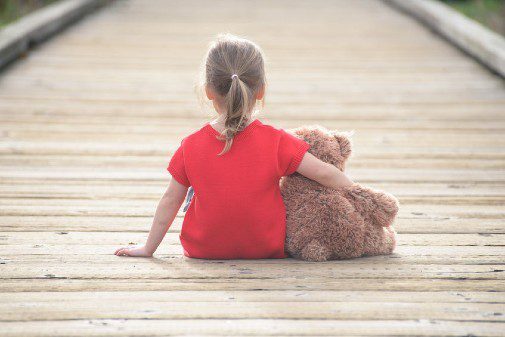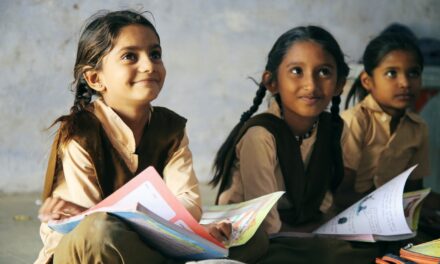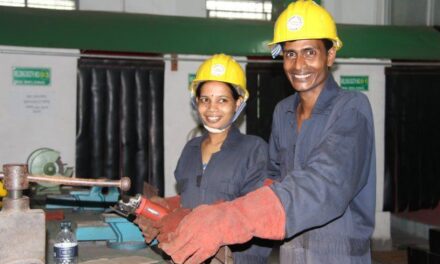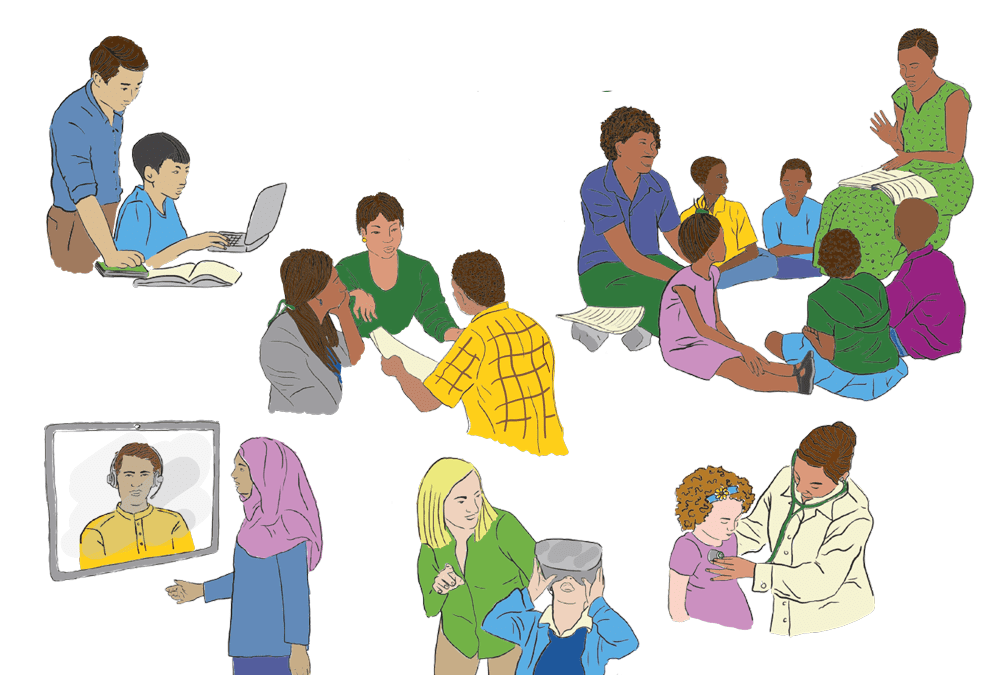This blog was written by Gloria Moroni, Post-doctoral Researcher, Erasmus University of Rotterdam; Cheti Nicoletti, Professor of Economics, University of York; and Emma Tominey, Professor of Economics, University of York. It was originally published on the Vox website on 9 April 2020.
The COVID-19 crisis has closed down schools around the world, leaving parents and guardians to educate their children at home. In this way as in others, the crisis will not affect all families equally, but will cause particular harm to children from low-income and less-educated households. This column suggests that socio-emotional issues in children will be amplified if their home environment is stressful, and suggests some ways that governments can mitigate that stress and support struggling families.
 School closures have been a global response to the COVID-19 pandemic, with children in many countries spending all of their time at home with parents or guardians. Many parents are squeezing in jobs or work-related tasks with the additional responsibility for home schooling their children. We know that the cancellations of schools and examinations are likely to come with detrimental consequences for children’s education (Burgess and Sievertsen 2020). But this increased stress and burden on parents, added to the social isolation of children from their friends and teachers, may also affect the socio-emotional skills of children.
School closures have been a global response to the COVID-19 pandemic, with children in many countries spending all of their time at home with parents or guardians. Many parents are squeezing in jobs or work-related tasks with the additional responsibility for home schooling their children. We know that the cancellations of schools and examinations are likely to come with detrimental consequences for children’s education (Burgess and Sievertsen 2020). But this increased stress and burden on parents, added to the social isolation of children from their friends and teachers, may also affect the socio-emotional skills of children.
A child’s socio-emotional skills include their mental health, wellbeing, and behaviour more generally. A likely outcome of the COVID-19 pandemic is that psychological issues in children will get amplified if the home environment is stressful. This exacerbation of pre-existing psychological issues can be most prominent for particular children: those in low educated and less affluent households, who tend to have lower socio-emotional skills already (Attanasio et al. 2020); for boys, who are more likely to experience behavioural issues than girls (Bertrand and Pan 2013); and for both boys and girls during adolescence, a stage when the probability of psychological disorders increases (Patalay and Fitzsimons 2018). On the other hand, positive interactions between parents and children – particularly during a stressful period – can attenuate these psychological disorders in children (Moroni et al. 2019).
Children particularly at risk
The COVID-19 pandemic creates a stressful environment for families through many channels: worries about the health of family; pressures of having to go out to work; the stress of having to arrange work from home; potential unemployment and lost income; and other consequences of living through a pandemic. On top of this, children’s schooling is now their parent’s responsibility, and the level of help schools provide is likely to vary widely from school to school. Clearly, how much parents can help their children in keeping up with their education outside school varies widely across families, as do the resources given to parents by their child’s school.
Added to this, coronavirus and school closures can have a direct effect on the level of stress faced by children due to isolation from their friends and schools, sudden and extreme changes to their usual daily routines, and concerns about their own and their family’s health. We ask what interactions between parents and children can help children with poor socio-emotional skills when living in a stressful home environment, and find three “inputs” from parents (or interactions between parents and children) that act as stressors for children’s socio-emotional skills, amplifying socio-emotional disparities across children (Moroni et al. 2019).
- Mental health of mothers: Children whose mothers have experienced mental health problems are exposed to a more stressful home environment. If these children exhibit socio-emotional problems along with the mothers’ poor mental health, their skills will worsen over time. Interventions aimed at supporting mothers’ mental health would help narrow children’s socio-emotional disparities, especially in periods with high-stress factors such as the COVID-19 crisis.
- Time investments: The time that parents spend with their children on productive or educational activities are important determinants of childhood development (Fiorini and Keane 2014, Del Bono et al. 2016, Attanasio et al. 2020). Our paper identifies that low levels of time investments constitute a stressful home environment and can exacerbate existing socio-emotional disparities between children. On the other hand, these disparities can be attenuated with an increase of parental time investment in households spending insufficient time with their children.
- Harsh parenting style: Psychologists and economists have considered parenting style – such as how warm, strict, or communicative a parent is – as an important determinant of a child’s skills (Doepke and Zilibotti 2017). During a period of home schooling, parents will try to enforce rules and boundaries so that their children can learn. However, harsh parenting – including shouting at or smacking children – particularly when the socio-emotional skills of children are low, will exacerbate children’s behavioural and emotional problems. Instead, moving to a more sensitive style of parenting can help close the socio-emotional gaps observed across children.
Policies to mitigate the effect of COVID-19 on socio-emotional skills of children
What policies can mitigate the negative effects of COVID-19? In light of the evidence, policies which alleviate stress that parents and children might experience in the home environment during this period of isolation can help mitigate the potential negative effects on children’s socio-emotional skills.
In particular, the research above highlights that vulnerable children are those whose parents have mental health issues. The mental health of parents during the pandemic will likely deteriorate, both for parents at risk of losing their job and parents regularly exposed to high health risks because of their job. A priority must be to safeguard access to mental health resources for both parents and their children. And because the economic consequences of not working can be a source of immense stress for parents, a strong and supportive welfare state, which allows households to avoid housing and food insecurity, is essential.
For parents whose time is constrained by their work commitments, the stress and burden created by the pandemic combined with the responsibility of home schooling calls for coordinated support from the government. The provision of home schooling broadcast on television in China and Vietnam is one such example. Along the same lines, the BBC plans to provide online schooling activities in the UK from the 20th of April to complement schooling resources. This is certainly a step in the right direction, aiming to remove part of the burden of home schooling and the potential stressful home environment, even for parents unable to increase the time spent with children or for parents suffering from mental health issues.
We know that there are large differences in socio-emotional skills determined by parental background. A recent paper by Attanasio et al. (2020) estimates that socio-emotional skills have become more unequal between the 1970-2000 birth cohorts. For example, the gap in the socio-emotional skills of children across low and highly educated mothers increased by about 10-15% of a standard deviation for children born in 2000 with respect to 1970. Similarly, we expect to see an increase in inequalities in children’s skills as a result of COVID-19 due to the variability in the home environment across households that the child is exposed to during this time. Therefore, support for the most vulnerable children – be they from low socio-economic status families; have existing conditions; or live in otherwise at-risk environments – will be essential.
References
Attanasio, O, R Blundell, G Conti and G Mason (2020), “Inequality in socio-emotional skills: A cross-cohort comparison”, Journal of Public Economics, Forthcoming.
Attanasio, O, S Cattan, E Fitzsimons, C Meghir and M Rubio-Codina (2020), “Estimating the production function for human capital: results from a randomized controlled trial in Colombia”, American Economic Review, 110(1): 48-85.
Bertrand, M and J Pan (2013), “The trouble with boys: Social influences and the gender gap in disruptive behavior”, American Economic Journal: Applied Economics, 5(1):32–64.
Burgess, S and H H Sievertsen (2020), “Schools, skills, and learning: The impact of COVID-19 on education”, VoxEu.org, 1 April.
Del Bono, E, M Francesconi, Y Kelly, and A Sacker (2016), “Early Maternal Time Investment and Early Child Outcomes”, Economic Journal 126: F96-F135
Doepke, M and F Zilibotti (2017), “Parenting with style: Altruism and paternalism in intergenerational preference transmission”, Econometrica 85(5):1331-1371.
Fiorini, M and M P Keane (2014), “How the allocation of children’s time affects cognitive and noncognitive development”, Journal of Labor Economics 32(4): 787-836.
Moroni, G, C Nicoletti and E Tominey (2019), “Child Socio-Emotional Skills: The Role of Parental Inputs”, IZA working paper 12432.
Patalay, P and E Fitzsimons (2018), “Development and predictors of mental ill-health and wellbeing from childhood to adolescence”, Social psychiatry and psychiatric epidemiology 53(12): 1311-1323.




